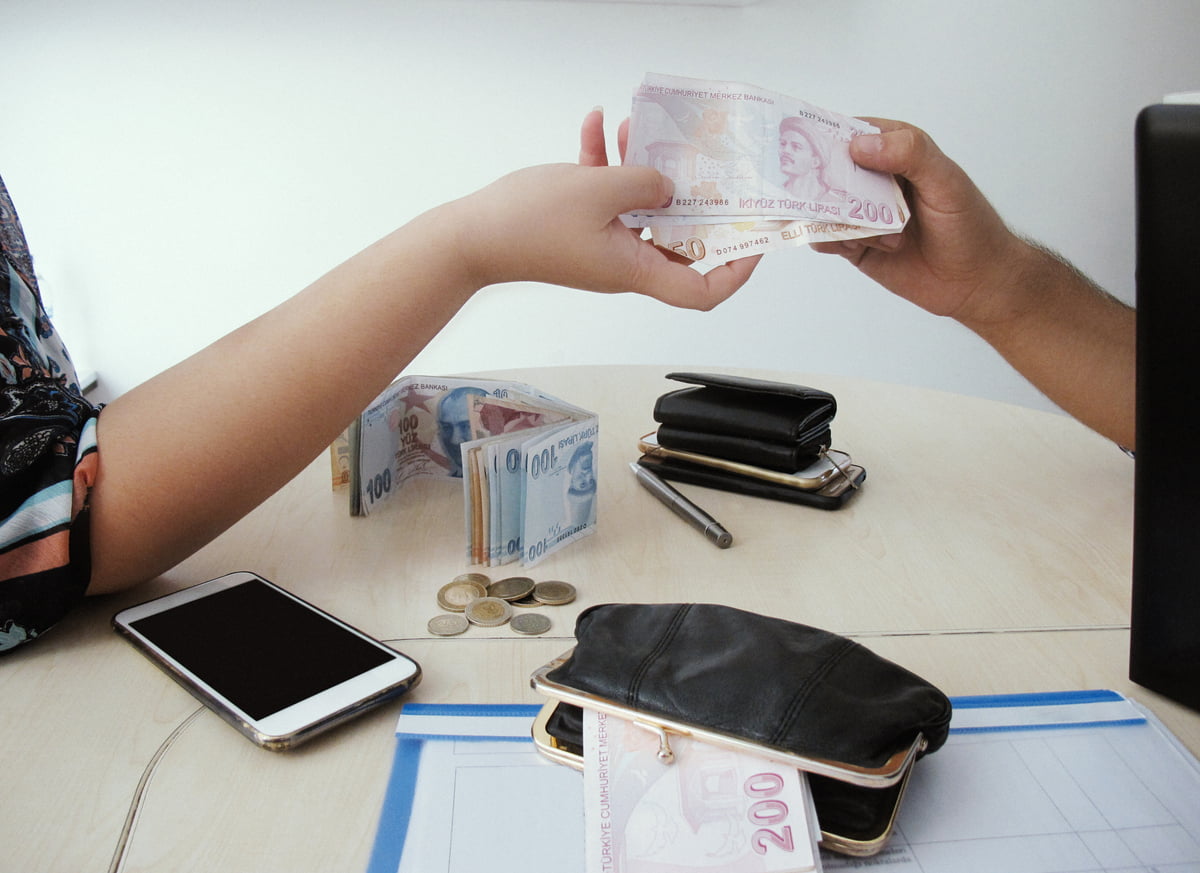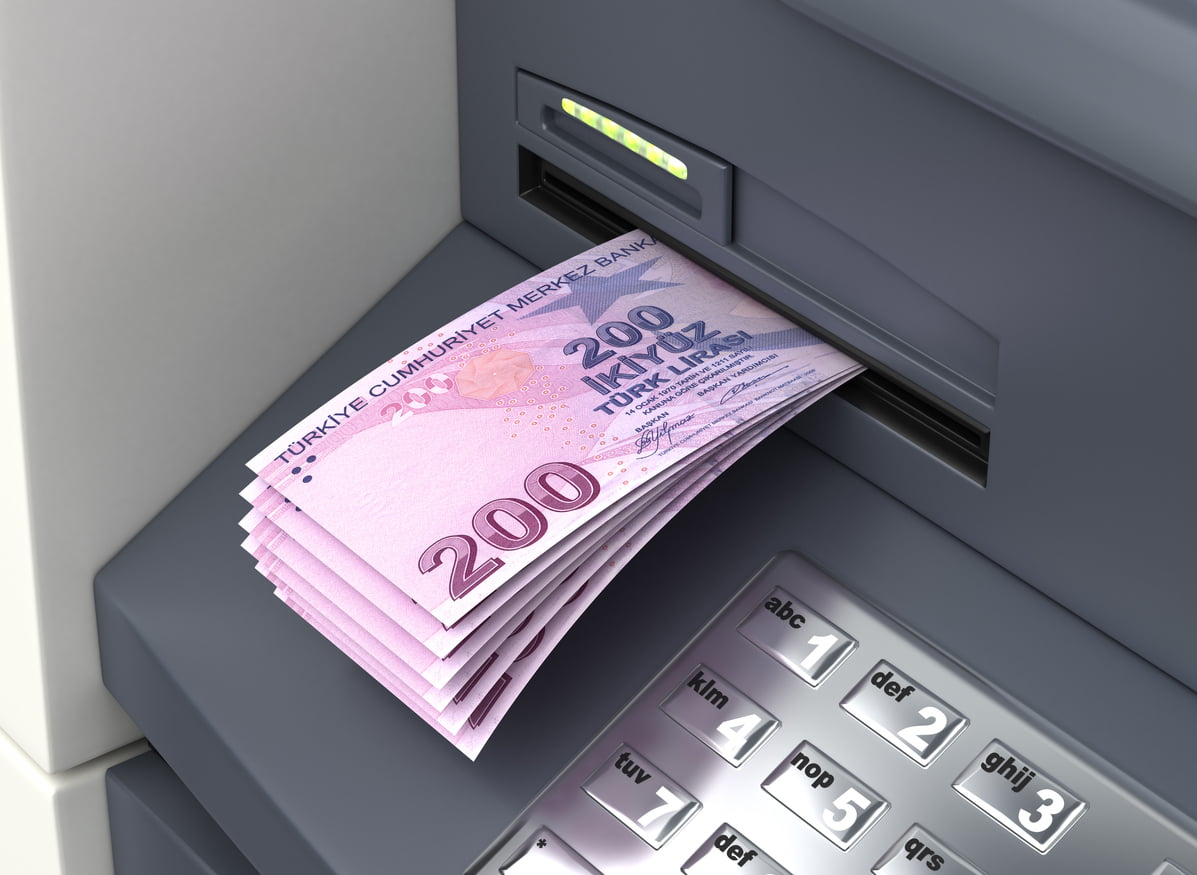One of the main changes you will experience during your trip will be that of money: Turkey’s currency, the Turkish currency is different from that of your country, as well as prices and certain shopping habits.
On this page we tell you everything you need to know before traveling so that you can manage effectively, without surprises and without falling into unnecessary cost overruns.
The currency of Turkey is the Turkish lira, which is written in the local language as Türk lirası.
Su abreviatura puede ser TRY (código ISO), que es habitual en entornos técnicos, por ejemplo cuando se ofrece información económica o bursátil, pero es más común encontrar la abreviatura TL a nivel cotidiano, por ejemplo en tiendas o supermercados.
It is also very common to find its symbol ₺, and in fact it is what accompanies the numbering of the Turkish lira on banknotes.
But in many cases the amount of money or the price of a product is simply expressed as a number, without a symbol.
The Turkish lira is the currency of Turkey since 1844 and is issued by the Central Bank of the Republic of Turkey.

The division and grouping of the Turkish lira is very similar to that of other world currencies, for example the euro.
In fact, the design and colors of its coins are similar in its highest value coins: an outer ring and a central circle, in contrasting gray and gold.
The Turkish lira is subdivided into 100 kurush, as is the case with euro cents or US cents.
In other words: 1 Turkish lira = 100 kurush.
When a price is written with its numerical value, two decimal places are usually indicated, especially if it is a small amount.
For example: 3.95 to indicate 3 Turkish lira and 95 kurush.
These are the subdivision and grouping of the Turkish lira and, therefore, of the coins and banknotes that you will be able to hold in your hand during your trip:
Of course, the equivalence of the Turkish lira to other world currencies fluctuates continuously, and the values below may be slightly different from what they will be during your trip.
However, the Turkish Central Bank’s policy has always been to keep the value of its currency low, so you are likely to handle large amounts of Turkish lira when exchanging money, especially if your local currency is the dollar, euro or pound sterling.
One Turkish lira is equivalent to (in September 2023):
Or to put it another way:

To handle money in Turkey, you can exchange an amount in Turkish lira before arriving in the country.
But as it is a relatively weak currency, it may be more profitable for you to exchange already in Turkey, as exchange rates are usually more advantageous in this country.
Currency exchange currency in Turkey You can do it in the exchange offices, where usually lower rates are offered.
These exchange offices are numerous in the center of Istanbul and in the main tourist destinations of the country, as well as in strategic places for the arrival of tourists, such as airports and major train stations.
Banks can also provide this service, but they often restrict it to their own clients and at higher exchange rates, so it is advisable to check beforehand.
Many hotels, especially those in the more touristy areas, can also provide currency exchange, although at relatively high costs.
In addition, post offices (PTT) may also offer this service at a relatively moderate price.
Another easy option is to withdraw Turkish lira directly from the ATM.
This is common in Istanbul and major cities for Visa, Mastercard, Cirrus and Maestro users.
However, it is advisable to pay attention to the cost of this service, which will appear on the screen before performing the operation, to assess whether it is really worth it.
In cities and tourist destinations, the number of ATMs is high, so you will have no problem finding one near you.
On the other hand, in sparsely populated areas, their number is much lower.
In addition, it is not uncommon for these ATMs to be short of cash, so if you are visiting rural or natural areas of Turkey, we recommend that you carry enough cash with you.
Finally, it should be noted that there is no black market for foreign exchange in Turkey, as there is in other countries, especially those with a more delicate economic situation.
In any case, we advise you to always exchange money through official channels (exchange offices, trusted hotels, banks) but never privately to individuals, as it could be a scam.
In large cities and tourist destinations, some establishments and professionals may accept payment in US dollars or euros.
However, this is not the most common and only happens in hotels, restaurants and long cab rides, but not on a day-to-day level and for small purchases.
Some ATMs in these areas may also dispense dollars or euros.
Paying by card or cell phone is a widespread practice in Istanbul, in major cities and tourist destinations and, in general, in western Anatolia.
In contrast, the availability of POS terminals is not as high in central and eastern Anatolia, as well as in rural areas of the country.
On the other hand, we advise you to inform your bank or credit card provider of your trip so that they can authorize transactions in Turkey.
Otherwise, they may consider it to be fraud, blocking the card for security reasons.